When Worship Becomes Your Starting Point

Acts 1:12–14 (CSB)
12 Then they returned to Jerusalem from the Mount of Olives, which is near Jerusalem—a Sabbath day’s journey away. 13 When they arrived, they went to the room upstairs where they were staying: Peter, John, James, Andrew, Philip, Thomas, Bartholomew, Matthew, James the son of Alphaeus, Simon the Zealot, and Judas the son of James. 14 They all were continually united in prayer, along with the women, including Mary the mother of Jesus, and his brothers.
12 Then they returned to Jerusalem from the Mount of Olives, which is near Jerusalem—a Sabbath day’s journey away. 13 When they arrived, they went to the room upstairs where they were staying: Peter, John, James, Andrew, Philip, Thomas, Bartholomew, Matthew, James the son of Alphaeus, Simon the Zealot, and Judas the son of James. 14 They all were continually united in prayer, along with the women, including Mary the mother of Jesus, and his brothers.
Stepping Into the Story
You weren’t there when Jesus ascended into heaven, but the weight of that moment is still rippling into your story today. The disciples stood on a hilltop outside Jerusalem, watching the Lord they loved be lifted into the sky, returning to the Father’s right hand. But they didn’t stare into heaven in confusion or despair. Instead, they went back to the city with worship in their hearts, joy in their steps, and prayer on their lips. That moment marked them—and it marks you too. Because their response to the ascended Christ is a model for how you and I are invited to live every day: worshiping, obeying, uniting, and praying as we wait on the Spirit and move forward in Kingdom mission. This is where Kingdom work begins: with a heart captured by Christ and a life surrendered to Him.
Why This Passage Still Matters Today
This passage speaks to your life because:
- It reminds you that Kingdom work begins with a clear view of Christ’s exaltation.
- It shows you that true worship always leads to joyful obedience and united prayer.
- It calls you to live in confident dependence on the reigning Christ.
Worshiping the Exalted Christ
"Then they returned to Jerusalem... After worshiping Him" (Acts 1:12; Luke 24:52)
Look Closer
Jesus’ final act before ascending was to bless His followers (εὐλογέω, eulogeo)—a divine pronouncement of favor that echoes the priestly benedictions of the Old Testament (cf. Numbers 6:24–26). This blessing connects Jesus to the role of a high priest (cf. Heb. 4:14), and the act of blessing recalls moments where God’s presence leads to worship in the Hebrew Scriptures (e.g., Exodus 34:8, where Moses bowed to the ground after encountering God’s glory).
The disciples responded with worship (προσκυνέω, proskyneō)—a word used over 50 times in the Septuagint to describe bowing before God. This was not simply an act of honor, but of full surrender. Importantly, Luke shows that this act was immediate and joyful—linking divine revelation with an unreserved human response. The presence of worship in this moment testifies to Jesus' deity, because worship (especially in Jewish monotheism) was reserved for God alone (cf. Luke 4:8).
Consider also the word δόξα (doxa – glory), which throughout Luke’s Gospel has been connected to divine manifestation (Luke 2:14; 9:32). Though the word doesn’t appear directly in this passage, it hovers over it as the unspoken backdrop: the exalted Christ is clothed in glory, prompting a response of reverence and awe. The disciples saw not just a man ascending—but the glorified Son returning to the Father.
This act of worship was the Church’s first response to Christ’s exaltation. It set the trajectory: Kingdom work begins not with activity, but with adoration. Their worship was not rooted in nostalgia, fear, or confusion—but in clarity, joy, and expectancy.
The disciples responded with worship (προσκυνέω, proskyneō)—a word used over 50 times in the Septuagint to describe bowing before God. This was not simply an act of honor, but of full surrender. Importantly, Luke shows that this act was immediate and joyful—linking divine revelation with an unreserved human response. The presence of worship in this moment testifies to Jesus' deity, because worship (especially in Jewish monotheism) was reserved for God alone (cf. Luke 4:8).
Consider also the word δόξα (doxa – glory), which throughout Luke’s Gospel has been connected to divine manifestation (Luke 2:14; 9:32). Though the word doesn’t appear directly in this passage, it hovers over it as the unspoken backdrop: the exalted Christ is clothed in glory, prompting a response of reverence and awe. The disciples saw not just a man ascending—but the glorified Son returning to the Father.
This act of worship was the Church’s first response to Christ’s exaltation. It set the trajectory: Kingdom work begins not with activity, but with adoration. Their worship was not rooted in nostalgia, fear, or confusion—but in clarity, joy, and expectancy.
Truth to Live By
Worship is your reflex when Christ is your focus.
Living the Story
- What does worship look like in your daily life?
- What part of Jesus’ exaltation stirs your soul?
- How does your view of Christ shape how you live today?
Write Your Story
- Where in your life do you need to see Jesus “still working” today?
- What step can you take this week to more fully join His mission?
- How can you encourage another believer to see their role in God’s story?
Consider This Prayer
Lord Jesus, You are exalted and reigning. Let my heart respond in worship that shapes every part of my life. Keep me in awe of who You are and what You’ve done.
Worship isn’t the end of the Christian life—it’s the launch. The disciples didn’t stay on the mountain; they moved in obedience. The next step in Kingdom mission is walking in joyful trust.
Obeying with Joyful Trust
"They returned to Jerusalem with great joy..." (Luke 24:52; Acts 1:12)
Look Closer
Jesus had instructed them not to depart from Jerusalem but to wait for the Father’s promise (Acts 1:4). This was a clear command—παραγγέλλω (parangellō)—a military-style order with binding authority. Their return to Jerusalem, despite its hostility (cf. Luke 22–24), was no small act. It was the very city where their Lord had been crucified and where religious leaders remained fiercely opposed to Jesus’ followers.
And yet, they returned not reluctantly, but with great joy (χαρᾶς μεγάλης, charas megalēs). Their obedience wasn’t driven by fear, but by faith in the exalted Christ. They were confident that the One who had conquered death could be trusted with their steps. It is striking that Luke emphasizes their joy. True joy springs from deep trust—a trust that transforms obedience from mere duty into delight.
And yet, they returned not reluctantly, but with great joy (χαρᾶς μεγάλης, charas megalēs). Their obedience wasn’t driven by fear, but by faith in the exalted Christ. They were confident that the One who had conquered death could be trusted with their steps. It is striking that Luke emphasizes their joy. True joy springs from deep trust—a trust that transforms obedience from mere duty into delight.
Truth to Live By
Obedience becomes joyful when your confidence is anchored in the risen, reigning Christ.
Living the Story
- Live by His Word: Obey where God has called you—even when it’s uncomfortable.
- Build Each Other Up: Cheer one another on in acts of obedience rooted in trust.
- Move His Kingdom Forward: Let your joyful obedience be a witness to a watching world.
Write Your Story
- Where might God be calling you to obey with joy?
- How does trust in Christ shape your willingness to follow?
- Are there areas where fear or comfort are keeping you from obedience?
Consider This Prayer
Lord, give me a heart that finds joy in Your commands. Teach me to trust Your wisdom, obey Your voice, and follow You—even when it leads into challenge or risk.
Joyful obedience positioned them for something greater—not just to wait, but to unite. Because those who trust Christ don’t just move alone—they move together. Let’s look at the power of prayerful unity.
Praying with Unified Dependence
"They all were continually united in prayer..." (Acts 1:14)
Look Closer
This is the first recorded act of the post-ascension Church: persistent, unified prayer. The Greek word προσκαρτεροῦντες (proskarterountes) implies steadfast devotion—not a single moment of prayer, but a lifestyle of continual, intentional intercession. This same word is used elsewhere in Acts (2:42; 6:4) to describe the Church’s commitment to prayer and the ministry of the Word, underscoring its centrality in the life of the early believers.
Notice the diversity and unity present in this upper room: apostles, women, Mary the mother of Jesus, and His brothers—those who once doubted Him (cf. John 7:5). Their inclusion here signals something profound: the resurrection and exaltation of Christ had transformed skeptics into worshipers and co-laborers. James, Jesus’ half-brother, would later become a key leader in the Jerusalem church (Acts 15).
This prayer meeting wasn’t driven by hype—it was born from dependence. They weren’t trying to manufacture power; they were waiting for it. Their unity in prayer reveals the heartbeat of the Church: before preaching, before organizing, before sending—there was praying.
Notice the diversity and unity present in this upper room: apostles, women, Mary the mother of Jesus, and His brothers—those who once doubted Him (cf. John 7:5). Their inclusion here signals something profound: the resurrection and exaltation of Christ had transformed skeptics into worshipers and co-laborers. James, Jesus’ half-brother, would later become a key leader in the Jerusalem church (Acts 15).
This prayer meeting wasn’t driven by hype—it was born from dependence. They weren’t trying to manufacture power; they were waiting for it. Their unity in prayer reveals the heartbeat of the Church: before preaching, before organizing, before sending—there was praying.
Truth to Live By
Prayer is how the Church stays centered, connected, and commissioned.
Living the Story
- Live by His Word: Depend on God daily through persistent prayer.
- Build Each Other Up: Pray in unity with others—it strengthens the body.
- Move His Kingdom Forward: Let your prayers align with God’s mission.
Write Your Story
- What keeps you from praying with consistency and depth?
- Are you committed to praying with others—not just for them?
- How might God want to use your prayers to strengthen His Church?
Consider This Prayer
Father, draw me into deeper dependence through prayer. Unite my heart with Your people. Let my prayers be bold, expectant, and Spirit-led as I wait on You.
This was not a passive season—it was a prayerful one. And as they waited together in unity, heaven was preparing to act. That’s where Kingdom work always begins: in the upper room of dependent hearts.
Whose Story Is This?
This is the Church’s story. It’s your story too. You live in the wake of Christ’s ascension—empowered, equipped, and called. The same Jesus who ascended will return. Until then, let your worship be real, your obedience be joyful, and your prayer be relentless. Because the exalted Christ is not only reigning over you—He is working through you.
So live with boldness, love with purpose, and pray like heaven is listening—because it is.
So live with boldness, love with purpose, and pray like heaven is listening—because it is.

No Comments